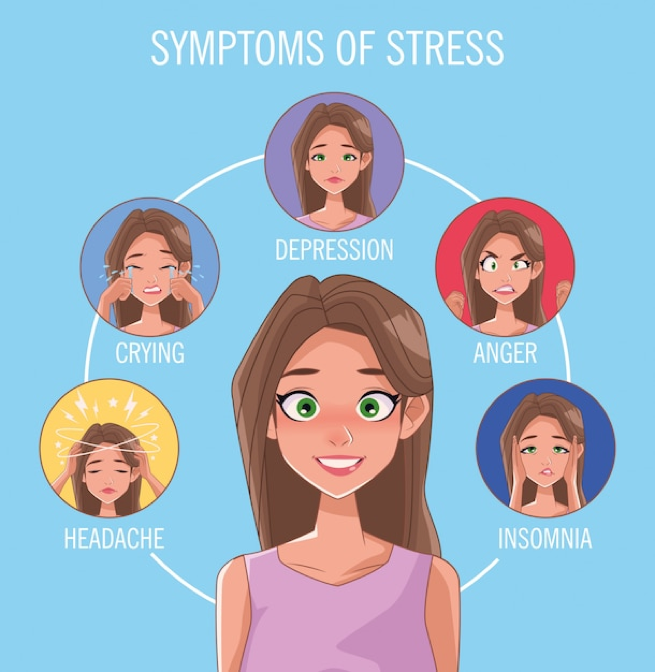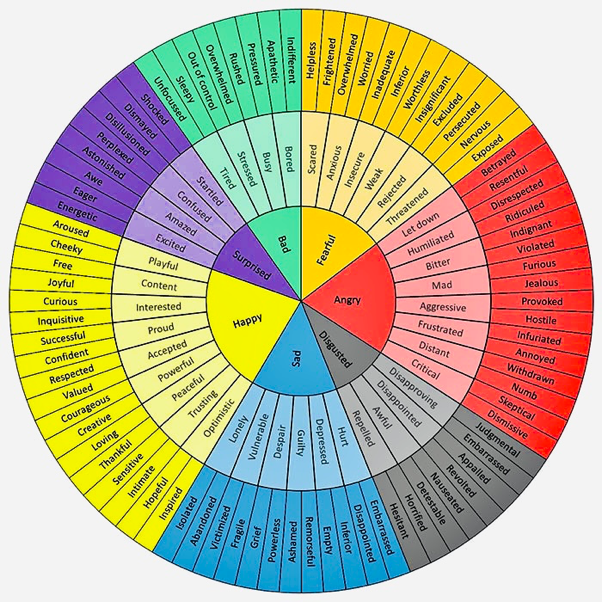Short lived situations, such as a traffic jams, losing your keys, unable to find your phone, or long term conditions, namely, money problems, and death of a loved one, a daunting health diagnosis, and family issues can all produce anxiety and stress.
Whilst some stress can be beneficial, for instance, stress that motivates you to compete in a sporting event, studying for an exam, organizing and preparing for a special event - long term untreated stress is closely linked to concerning health issues, including depression, heart disease, obesity and a weakened immune system.
Women consistently report higher levels of stress, due to the undertaking of more family responsibilities or because women experience stress differently. Irritability, changes in appetite, gastrointestinal issues, nervousness, insomnia, hormonal imbalances, and headaches are quite often the result of tension and strain.
VICIOUS CIRLCLE OF EMOTIONS.
Women, who juggle many responsibilities, might find it difficult to adequately manage stress, and possibly succumb to over eating, alcohol abuse, self-medicating, and loosing focus.
These six tips will help combat feelings of helplessness, provide clarity of mind and some relief.
1. SETTING LIMITS – List the projects and commitments that are causing anxiety. Identify priorities and cut back on non-essentials. Do not accept more assignments until you feel what you have is under control. Neuroscience is now advocating single tasking and not multi-tasking, as they have proven it causes more stress.
2. MAKE ONE HEALTH RELATED COMMITMENT – Small steps provide immense benefits. Cut back on excessive snacking, start some aerobic activity. Physical activity promotes the release of serotonin, the feel good hormone. And quiet meditative moments can help still the mind into calmness.
3. MANAGE YOUR DEVICES – Social media inundation, constantly checking emails and messages, do not let the mind rest. Take some time off your phone, use those moments for you. Painting, knitting and crocheting have the effect of stabilizing the heartbeat, into a calm steady rhythm, as the mind focuses on creating something with the hands and eyes.
4. TRACK YOUR STRESSORS – Use a journal to identify situations that create more pressure. Record thoughts, feelings, and information about where, who, when, why and how. Write down exactly what led to that tension, and what was your reaction. Tracking the patterns and finding consistencies, will bring awareness and guide you through in future similar situations.
5. SUPPORT SYSTEM – The presence of trusted friends and family, who you can reach out to, can help you manage everyday challenges, make decisions or even advise you on how to navigate in a crisis situation. Take a step further and create a group of people, encountering comparable emotions to yours, have group meetings to share feelings and ideas on how to combat the struggles together.
6. PROFESSIONAL HELP – If you continue to feel helpless, and have trouble getting through your daily routine, seek help from a licensed professional. Psychologists are trained to help you develop strategies and to help improve your overall health.
“IT IS NOT STRESS THAT KILLS US, IT IS OUR REACTION TO IT”
Hans Selye








